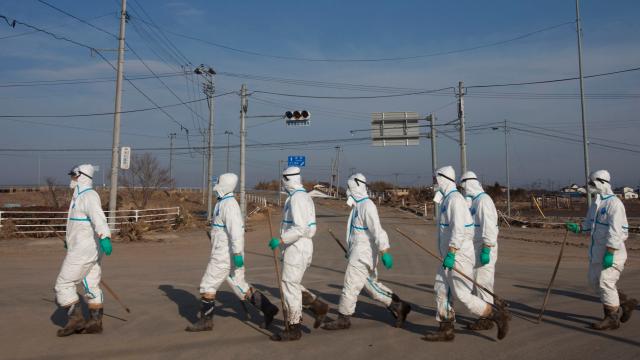There is no permanent solution for Fukushima’s radioactive water, which has been leaking out of storage tanks again and again. Could the best option actually be just letting all into the ocean?
Over at Nautilus, Eliza Strickland has a snappy summary of the problem with Fukushima’s radioactive water, which is at 620,000 gallons and counting. This water is used to continuously cool the melted-down reactors, which means the problem is only growing. Storing it in tanks indefinitely is expensive and, as history has demonstrated, not a leak-proof proposition.
So the United Nation’s International Atomic Energy Agency has suggested dumping it in the ocean, which is not as cavalier as it might sound on first blush:
Tritium traditionally hasn’t been considered very dangerous to human health. Although tritiated water can reach all parts of the body, like normal water, it’s also expelled quickly from the body, like normal water. If released into the ocean, the contaminated water would quickly be diluted, and it wouldn’t bioaccumulate in fish (unlike strontium-90, for example, which is taken up by bones).
However, it’s also fair to say we don’t know as much about tritium as we should, and it’s possible it could be more dangerous than thought. Either way, writes Strickland, dumping radioactive water is not likely to be political feasible with local fishermen fiercely opposed to the idea. So that leaves… storage tanks?
[Nautilus]
Picture: AP Photo/David Guttenfelder
